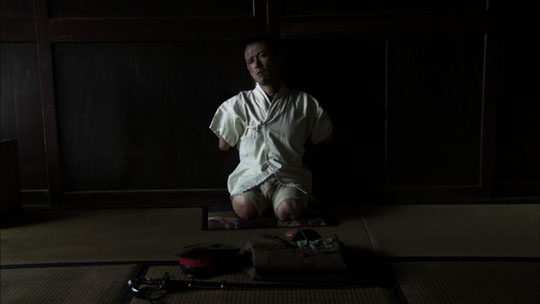Koji Wakamatsu is living proof that a lifelong rebel can thrive in Japan's go-along-to-get-along film industry. Today he is celebrated as not just another '60s survivor — he helped pioneer the pinku (pink, or soft porn) genre in that era, mixing in radical politics and experimental aesthetics with the sex — but a still-relevant director who has done some of his best work in his eighth decade.
Wakamatsu's epic 2007 docudrama "Jitsuroku Rengo Sekigun: Asama Sanso e no Michi" (The Red Army) examined the violent apotheosis of the far-left United Red Army group that in the early 1970s tortured and murdered its "deviant" members and fought a pitched gun battle with police from a Karuizawa mountain lodge. Wakamatsu, who personally knew several Red Army members, put the brutal truth on the screen with no punch pulling and no special pleading. The film not only won awards and screened widely abroad but drew audiences, despite its three-hour running time.
His latest film, the World War II home-front drama "Caterpillar," has also earned acclaim, including a Best Actress prize for star Shinobu Terajima at this year's Berlin Film Festival. Though based on a story by Edogawa Rampo, a mid-20th-century writer of the kinky and bizarre, the film is closer in spirit to Dalton Trumbo's 1971 antiwar film "Johnny Got His Gun." Like Trumbo's wounded WWI soldier, Wakamatsu's hero, Lt. Kyuzu Kurokawa (Shima Onishi), returns to his rural village a decorated veteran but also a shell of a man, minus legs and arms, deafened and disfigured, tortured by memories of his war crimes. Instead of pity, Wakamatsu examines this hero — and his outwardly dutiful but inwardly resentful wife (Terajima) — with a cool, unrelenting gaze that strips away posturing and exposes inner lives.


















With your current subscription plan you can comment on stories. However, before writing your first comment, please create a display name in the Profile section of your subscriber account page.